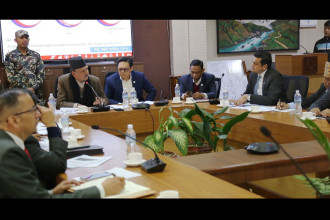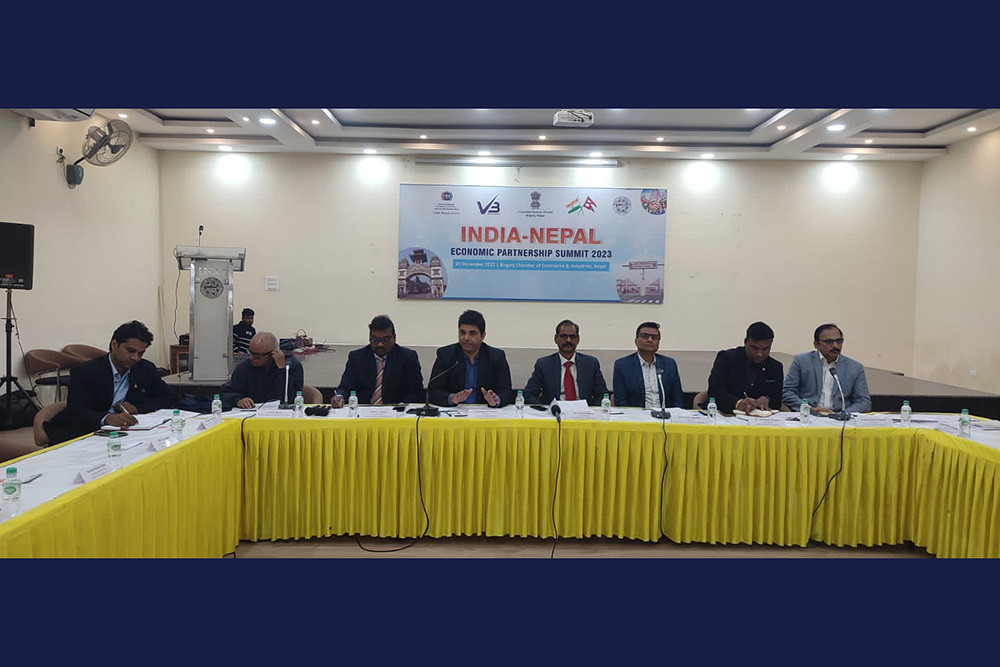
The Nepal Economic Forum (NEF) as a part of its regular #neftalk had Laurence Brahm speak on China’s Belt and Road Initiative (BRI). Laurence Brahm is the Chair of Himalayan Consensus Institute that has been organizing the annual Himalayan Consensus Summit in Kathmandu since 2016. Laurence gave a perspective on what China’s BRI means in a hall packed with audience. Sujeev Shakya, Chair of NEF introduced the speaker and the topic emphasizing that this initiative announced by China that dwarfs the Marshall Plan cannot be ignored. Given the emerging geopolitical trends with new Quad block and Indo Pacific initiatives being revived by Australia, Japan, India and United States, there is a new world order emerging. Nepal rather than pursuing equidistance policy between China and India, should take advantage of the synergy that China’s BRI and India’s Act East policy presents.
Of late,Laurence has been camping at international television channel studios in Beijing, interpreting the BRI and the recent announcements at the Congress to the world. He emphasized on a collective unconsciousness that the Chinese language is encrypted and does not make concepts easily translatable as they exist within a much broader context. Further, it was pointed out that fixed asset infrastructure like high speed rails, highways, ports and telecommunications as well as air travel systems are important driver of growth through a combination of public and private partnership, which is a critical part of China’s success story. The formula of fusion economics is what China intends to share through outbound investments in developing countries facing the same challenges as China has overcome through the past three decades through the BRI initiative.
Laurence acknowledged that the BRI is going to be intrusive, but according to him, ecological civilisation needs to run in parallel to the intrusion; and it is the path that China has taken in the recent years. Regarding the speculations on financing of the BRI projects, he noted that China is no longer the factory of the world, it is the investor of the world and will soon be the central bank of the world that creates financial architectures. The major challenge according to him, that the BRI faces, is the issue of cultural connectivity which calls for more cultural dialogue, not only in China, but in all the countries across Asia and Europe. Silk route was not only about trade of silk and tea but also an exchange of values and culture which needs to come back.
NEF is a not for profit organisation aiming to be Nepal’s premier private sector led economic policy and research institution. NEF strives to re-define the economic development discourse in Nepal, and works towards strengthening the Nepali economy through various activities that promote the growth of an efficient and inclusive private sector.
Published Date: December 24, 2017, 12:00 am
Post Comment
E-Magazine
RELATED B360 National





